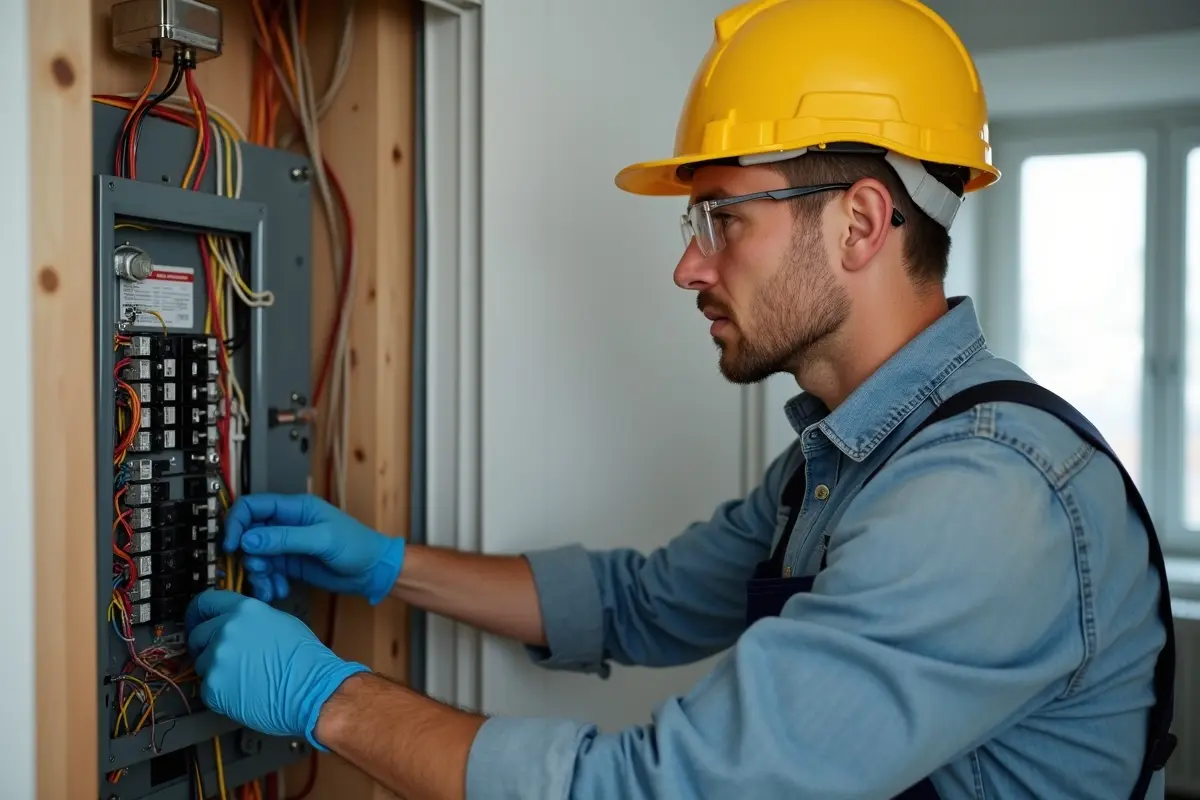
When to Replace Your Electrical Panel for Maximum Safety
Have you ever thought about the condition of your home’s electrical panel? It’s one of those things that often goes unnoticed – until something goes wrong. But replacing your electrical panel is a critical decision that affects the safety and efficiency of your entire home. So, how do you know when it’s time to take the plunge and upgrade?
What Does an Electrical Panel Do?
Before diving into when to replace it, let’s clarify what an electrical panel does. Your panel is essentially the brain of your home’s electrical system. It takes power from your utility company and distributes it throughout your house to keep everything running smoothly. Every outlet, light switch, and appliance gets its power via the circuit breakers in your electrical panel.
If this panel becomes outdated or damaged, it can lead to several issues, including power outages, flickering lights, or even dangerous electrical fires. Staying on top of its condition is crucial for maintaining a safe home environment. If you notice any issues, it’s vital to get in touch with experts like Milestone Electric, A/C, & Plumbing as soon as possible.
Common Signs Your Electrical Panel Needs Replacement
Is your electrical panel trying to tell you something? It might be. There are several warning signs you should be aware of. Here are five key indicators that it’s time to consider replacing your electrical panel:
- Frequent Circuit Breaker Trips – Circuit breakers are designed to trip when there’s too much power running through them, preventing electrical overload. If you’re constantly resetting breakers, it could indicate that your panel is struggling to handle the electrical load.
- Flickering or Dimming Lights – Are your lights flickering when you turn on the vacuum or microwave? This might signal that your electrical panel can’t supply consistent power to multiple appliances at once.
- Warm or Hot Electrical Panel – Your panel should never feel hot to the touch. If it does, this is a serious red flag and could point to faulty wiring or overloaded circuits.
- Old or Outdated Panel – If your panel is more than 25-40 years old, it might not meet modern electrical demands. Older panels weren’t built to handle today’s high-powered appliances and electronics.
- Burning Smell or Scorch Marks – If you notice a burning smell around your electrical panel, or see any scorch marks, it’s time to act immediately. This could be a sign of overheating or electrical arcing, both of which are fire hazards.
Why an Outdated Panel is a Risk
An outdated electrical panel isn’t just an inconvenience – it’s a real danger. Homes today use far more electricity than those of decades past. Think about how many gadgets you use daily: computers, televisions, air conditioners, chargers, kitchen appliances. If your electrical panel wasn’t designed for that kind of load, you’re putting your home at risk.
Overloaded panels can lead to:
- Electrical fires: Overheating wires and circuits are a top cause of house fires.
- Appliance damage: Inconsistent power flow can fry your expensive appliances, shortening their lifespan or making them useless.
- Power outages: If your panel can’t keep up, you might experience more frequent power outages or brownouts.
If your electrical panel is older or showing signs of struggle, upgrading can bring peace of mind and improved safety for your home and family.
Benefits of Upgrading Your Electrical Panel
If you’ve determined that your panel needs replacing, you might be wondering: what’s in it for you? Besides the obvious safety benefits, there are several advantages to upgrading your electrical panel:
- Increased Capacity – Newer panels can handle more power, so you won’t have to worry about tripped breakers or flickering lights when you run multiple appliances.
- Support for Modern Appliances – Newer panels are built to handle the demands of high-powered appliances like electric ovens, HVAC systems, and even electric vehicle chargers.
- Energy Efficiency – Upgrading your panel can help your entire electrical system run more efficiently, reducing wasted energy and potentially lowering your electricity bills.
- Home Value – If you’re planning to sell your home, an updated electrical panel can be a huge selling point. Buyers are often wary of homes with older systems, and a new panel can provide peace of mind.
- Compliance with Code – An outdated panel might not meet current electrical codes, which could pose a problem during a home inspection. Upgrading ensures you’re up to date with the latest safety standards.
When to Call a Professional
Electrical panels are not a DIY project. Working with electricity can be extremely dangerous if you’re not trained, so when it comes to replacement or repairs, always call a licensed electrician. They’ll be able to assess your current panel, suggest the appropriate upgrades, and make sure everything is installed safely and up to code.
An electrician can also help you determine the right panel size for your home’s needs. For example, if you plan to add high-powered appliances or expand your home in the future, a licensed Pompano Beach electrician or those in the local area, might recommend upgrading to a higher-capacity panel to prevent potential issues and ensure your system can handle increased electrical demand.
How Often Should an Electrical Panel Be Replaced?
There’s no hard and fast rule, but most electrical panels last between 25 and 40 years. If your home’s electrical panel is nearing this age or if you’ve noticed any of the warning signs mentioned above, it’s worth getting a professional inspection.
Remember, it’s better to replace an old panel before it becomes a serious problem. The last thing you want is for an overloaded panel to fail or spark an electrical fire.
Time to Take Action?
So, is it time to replace your electrical panel? If you’ve been dealing with tripped breakers, flickering lights, or a panel that feels warm to the touch, don’t wait. These are all signals that your panel might be struggling to keep up, and the risk of leaving it unattended is simply not worth it.
Prioritizing an upgrade could save you from future headaches – and more importantly, keep your home safe.

